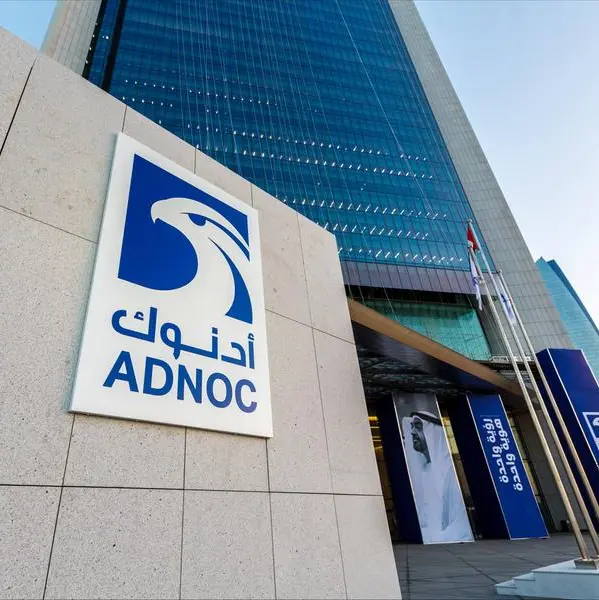02 October 2016
Muscat: Improved palliative care could help reduce medical costs by as much as 20 per cent, according to a senior consultant.
Palliative care is specialised care for people with serious, long term illness. It focuses on providing patients with relief and is usually organised at patient’s own home. Also known as end of life care, it is seen by many medical experts worldwide as the global standard for end of life care.
“Generally, you end up with patients receiving unnecessary treatment, which costs money. Yes, palliative care requires more manpower, but everywhere in the world where palliative care has been implemented, there were reduction in costs by about 20 per cent in total budgets.
“You’re employing more people, but the patient is going less often to the hospital and symptoms are controlled, so there are fewer problems and fewer admissions to the ICU, there are also fewer unnecessary end of life treatments. Giving someone chemotherapy one week before they die is not right,” said Dr. Zahid Al Mandhari, Senior Consultant at the Oncology Department of the Royal Hospital.
To encourage the use of palliative care, more medical professionals in Oman are being trained to offer quality help at home, as the country moves towards a more systematic palliative care structure.
Some 56 patients received palliative care last year,while 180 nurses have been trained across Muscat to offer palliative care services at home.
The nurses had training in basic and advanced stages this year, and will be given leadership training in two months time.
According to Dr. Al Mandhari, Oman has the correct infrastructure to introduce palliative care, and only public awareness needs to be encouraged.
“Everything for palliative care in Oman started falling in place about four or five years ago. We, in Oman have a unique situation because we have a very good primary healthcare system. Also, in that sense that we have secondary and tertiary care, so the system is very well established in the country.
“The Oman Cancer Association (OCA) had a mission and vision to establish palliative care in Oman. The doctors at the National Oncology centre, including myself, were trained in Canada, and when I came back I saw what is needed, and I see that we do have the infrastructure. We just need to get the knowledge out.
“We are not teaching these nurses anything new, but it’s just a different way of thinking and different approach of how to deal with patients, and basically empowering them.
“The concept of palliative care is directly linked to community nurses, from awareness to prevention and pain management. We have nurses certified by the American Society of Oncology nursing, which is recognised by the National Institute of Health and the National Cancer Institute, the top cancer centres, and also recognized by ASCO- American Society for Clinical Oncology,” said Dr. Wahid Al Kharusi, Chairperson of the Oman Cancer Association (OCA).
Maggie Jeans, an OBE whose husband died in November last year from cancer, is promoting the acceptance of palliative care for patients in Oman.
“The goal of such therapy is to improve the quality of life for both the patient and the family. Palliative care can be provided across multiple settings, including in hospitals, in the patient’s home, as part of community palliative care program, and in skilled nursing facilities,” she noted.
Dr. Al Mandhari is currently teaching courses to community nurses in Muscat to help them provide palliative care.
He said that although death is a certain thing, people are usually frightened to talk about it.
“When people hear about end of life, they hear about death. In palliative care they think that these patients are going to be quite difficult to handle, and obviously death and suffering and the concept of dying isn’t something that people are open to discuss, whether in the medical field or outside,” he said.
He added that palliative care focuses on reducing pain in patients and adding life to days, rather than days to life.
Taking care of patients
“Palliative care isn’t just about end of life, it’s a whole system that is in place to take care of patients with chronic illnesses, from the time of diagnosis to the time of death and even beyond, with the bereavement of the family, so it is a continuum of care that’s starts way beyond the time when things have been diagnosed with end of life.
“We set realistic goals with palliative care. If someone has to attend their son’s or daughter’s wedding or graduation, be part of something important, we help them attain those life dreams, rather than think of something long term which might not happen due to several reasons.
“So people can actually do a set of things, rather than spend just another day in the ICU, on a bed with lines and beeps, where they have been kept for one, two or three months,” noted Dr. Al Mandhari.
According to Dr. Al Kharusi, medical professionals, including doctors and nurses, are given extensive training in palliative care, which is being upgraded from time to time.
“So basically, this concept was started by OCA and, until today, we are progressing in further training medical professionals and upgrading them for the benefit of cancer patients and their families.
“Royal Hospital has opened a ward specialising in palliative care, where we trained some 20 doctors and now keep training them over and over again on pain management. We are trying to achieve a status where the patient can be treated in the comfort of their homes using pain relief, and a holistic approach to life, spiritual healing and attention. They need to be among their people without becoming a burden on their family,” Dr. Al Kharusi added.
Muscat: Improved palliative care could help reduce medical costs by as much as 20 per cent, according to a senior consultant.
Palliative care is specialised care for people with serious, long term illness. It focuses on providing patients with relief and is usually organised at patient’s own home. Also known as end of life care, it is seen by many medical experts worldwide as the global standard for end of life care.
“Generally, you end up with patients receiving unnecessary treatment, which costs money. Yes, palliative care requires more manpower, but everywhere in the world where palliative care has been implemented, there were reduction in costs by about 20 per cent in total budgets.
“You’re employing more people, but the patient is going less often to the hospital and symptoms are controlled, so there are fewer problems and fewer admissions to the ICU, there are also fewer unnecessary end of life treatments. Giving someone chemotherapy one week before they die is not right,” said Dr. Zahid Al Mandhari, Senior Consultant at the Oncology Department of the Royal Hospital.
To encourage the use of palliative care, more medical professionals in Oman are being trained to offer quality help at home, as the country moves towards a more systematic palliative care structure.
Some 56 patients received palliative care last year,while 180 nurses have been trained across Muscat to offer palliative care services at home.
The nurses had training in basic and advanced stages this year, and will be given leadership training in two months time.
According to Dr. Al Mandhari, Oman has the correct infrastructure to introduce palliative care, and only public awareness needs to be encouraged.
“Everything for palliative care in Oman started falling in place about four or five years ago. We, in Oman have a unique situation because we have a very good primary healthcare system. Also, in that sense that we have secondary and tertiary care, so the system is very well established in the country.
“The Oman Cancer Association (OCA) had a mission and vision to establish palliative care in Oman. The doctors at the National Oncology centre, including myself, were trained in Canada, and when I came back I saw what is needed, and I see that we do have the infrastructure. We just need to get the knowledge out.
“We are not teaching these nurses anything new, but it’s just a different way of thinking and different approach of how to deal with patients, and basically empowering them.
“The concept of palliative care is directly linked to community nurses, from awareness to prevention and pain management. We have nurses certified by the American Society of Oncology nursing, which is recognised by the National Institute of Health and the National Cancer Institute, the top cancer centres, and also recognized by ASCO- American Society for Clinical Oncology,” said Dr. Wahid Al Kharusi, Chairperson of the Oman Cancer Association (OCA).
Maggie Jeans, an OBE whose husband died in November last year from cancer, is promoting the acceptance of palliative care for patients in Oman.
“The goal of such therapy is to improve the quality of life for both the patient and the family. Palliative care can be provided across multiple settings, including in hospitals, in the patient’s home, as part of community palliative care program, and in skilled nursing facilities,” she noted.
Dr. Al Mandhari is currently teaching courses to community nurses in Muscat to help them provide palliative care.
He said that although death is a certain thing, people are usually frightened to talk about it.
“When people hear about end of life, they hear about death. In palliative care they think that these patients are going to be quite difficult to handle, and obviously death and suffering and the concept of dying isn’t something that people are open to discuss, whether in the medical field or outside,” he said.
He added that palliative care focuses on reducing pain in patients and adding life to days, rather than days to life.
Taking care of patients
“Palliative care isn’t just about end of life, it’s a whole system that is in place to take care of patients with chronic illnesses, from the time of diagnosis to the time of death and even beyond, with the bereavement of the family, so it is a continuum of care that’s starts way beyond the time when things have been diagnosed with end of life.
“We set realistic goals with palliative care. If someone has to attend their son’s or daughter’s wedding or graduation, be part of something important, we help them attain those life dreams, rather than think of something long term which might not happen due to several reasons.
“So people can actually do a set of things, rather than spend just another day in the ICU, on a bed with lines and beeps, where they have been kept for one, two or three months,” noted Dr. Al Mandhari.
According to Dr. Al Kharusi, medical professionals, including doctors and nurses, are given extensive training in palliative care, which is being upgraded from time to time.
“So basically, this concept was started by OCA and, until today, we are progressing in further training medical professionals and upgrading them for the benefit of cancer patients and their families.
“Royal Hospital has opened a ward specialising in palliative care, where we trained some 20 doctors and now keep training them over and over again on pain management. We are trying to achieve a status where the patient can be treated in the comfort of their homes using pain relief, and a holistic approach to life, spiritual healing and attention. They need to be among their people without becoming a burden on their family,” Dr. Al Kharusi added.
© Times of Oman 2016




















